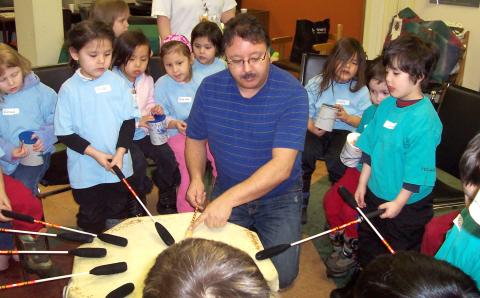My wife had an uncle who was an avid gardener. In fact, his entire family are avid gardeners. He recently died, and I was asked to speak at his funeral. In respect to his main hobby, I spoke about the Garden of Eden. I quoted Genesis 2:15, where God says, “The Lord God took the man (‘Adam’ in Hebrew) and put him in the Garden of Eden to work it and take care of it.” The thing I noted was that even in paradise, man had a job. The job he had was a gardening job, for which Adam was intentionally designed by God’s own self to enjoy and find fulfillment in.
But what is even more interesting about Adam’s gardening job is it meant he was supposed to be a caretaker of the garden. The original Hebrew word used here for “take care” is shomar, which also means “to protect.” In the Talmud, the ancient Jewish commentaries on God’s law), rabbis debate why Adam would need to protect and take care of a perfect paradise like Eden.
Reformed theologian O. Palmer Robertson gives an interesting answer: “Adam’s requirement to labor (in the garden) echoes the original cultural mandate of the covenant of creation, with its charge to bring the whole earth into subjection to the glory of God” (The Christ of the Covenants, p. 107). (It’s a very Kuyperian idea.)
What Robertson is saying is Adam’s original creation covenant mandate from God to subdue or have dominion over the earth was to do it for God’s glory, not man’s. In other words, the Genesis statement of subduing or having dominion (Gen. 1:28) was not meant to be a green light for Adam to plunder or exploit the planet for his own selfish reasons. God made Adam the earth’s custodian and steward.
As I pointed out in my sermon, my wife’s uncle would have understood this mandate of serving God’s glory as a caretaker and gardener perfectly. His garden was his sanctuary. It was there he found peace with God. He expertly understood and respected the nature of the plants he worked with. If he wanted them to be fruitful, he knew he had to take care of the soil and not overuse it so his plants could continue to find proper nourishment.
I don’t know a single farmer who would disagree with the idea of taking care of their soil and not intentionally destroying it. After all, it is their livelihood! Yet somehow when we translate our caretaking role to the broader idea of the entire planet, we run afoul of political ideologies. I have never understood as a Christian why this should be.
As believers, being environmentally conscientious is not contrary to biblical teaching or in some strange way being anti-Christian. Our job as God’s caretakers here on earth is a biblical decree straight out of the Garden of Eden.
So every time I drive by a landfill near my home and see the mountains of trash piling up day after day, week after week, year after year, this thought of our being caretakers here on earth hits me hard. I often think, can’t we do better than this? Shouldn’t we, the church, be the loudest voices for stewardship of the planet?
Discussion Questions
- What ideas or feelings do you have from reading that Adam was a gardener?
- How has the mandate to “subdue or have dominion” over creation been portrayed in what you’ve heard or read?
- Why do you think it is so controversial when it comes to applying the call to take care of the earth on a bigger scale?
- Do you agree with the author that we, the church, should be the loudest voices for stewardship of the planet? Why or why not?
About the Author
Rob Braun is a member of Bethel CRC in Princeton, Minn. He's been married for 47 years to his wife, Tammi, and has three adult children and two grandchildren. He's a semi-retired freelance writer and pastored an independent church for 15 years, former Hockey Coach and worked in retail for over 50 years.









